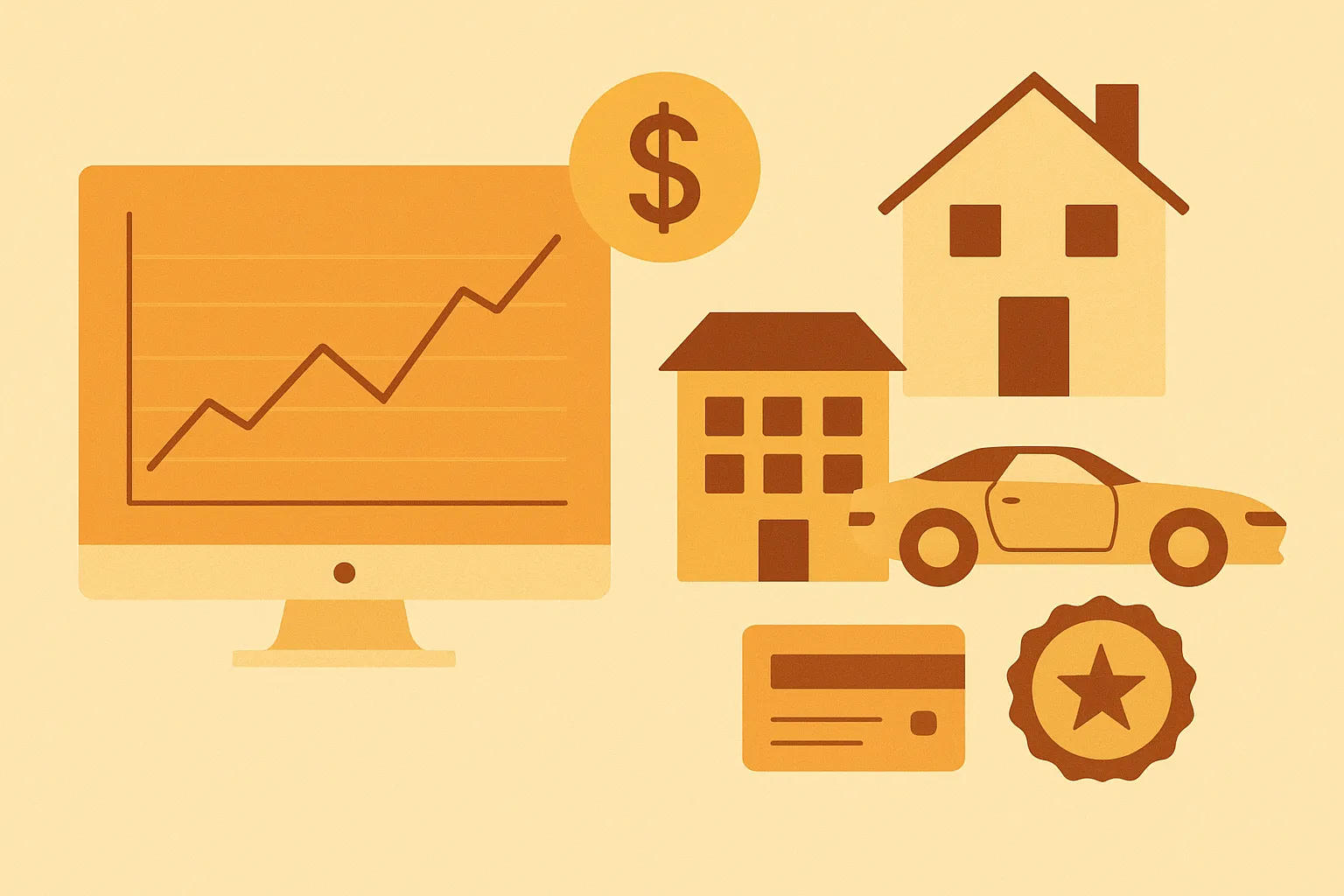Net Worth Tracking for Private Assets: Real Estate, LLCs, Collectibles

According to the 2022 Survey of Consumer Finances, about 20% of US families held privately owned businesses, and notable shares held additional real estate beyond a primary home. Yet many investors still measure net worth solely by what shows up in brokerage statements. That gap can lead to overconfidence or blind spots in planning. This article unpacks why tracking private assets matters, the unique challenges involved, and what approaches investors can use to bring clarity.
Key Takeaways
- Real estate, LLCs, and collectibles often account for a large share of household wealth, but are harder to value than market-traded assets.
- Ignoring these assets can distort risk assessments, liquidity planning, and tax strategies.
- Valuation approaches vary: appraisals, comparables, and income-based models each have trade-offs.
- Behavioral biases - such as overestimating home values or underreporting debt - can skew net worth tracking.
Why Private Assets Complicate Net Worth
Publicly traded stocks or ETFs have clear, daily prices. A share of Apple is the same in any account. Real estate or LLC interests do not work this way.
A home may be worth $500,000 on Zillow one week and $460,000 on the next appraisal. An LLC might generate steady cash flow but be valued very differently depending on whether a buyer looks at revenues or profit multiples. Collectibles - from vintage cars to rare watches - carry even greater subjectivity.
These differences matter because inaccurate estimates can cause investors to misjudge leverage. For a hypothetical example, someone who assumes their $1 million rental property can be sold instantly at that price may underestimate liquidity risk in a downturn.
Track investments, cash, crypto, real estate, and liabilities in one dashboard for free.
The Valuation Puzzle
- Real estate: Appraisers often use recent comparable sales, but these lag markets by months. Automated tools (like Zillow or Redfin estimates) may misfire in unique neighborhoods or for properties with custom upgrades.
- LLCs or private businesses: Investors may rely on income-based models - such as EBITDA (earnings before interest, taxes, depreciation, and amortization) multiples - but small shifts in assumptions can swing valuations widely.
- Collectibles: Auction records can help, but markets are thin. A baseball card may sell for $1,000 in one auction and $10,000 in another, depending on condition and demand.
Hypothetical case: Imagine a 45-year-old professional with $300,000 in brokerage accounts, a $600,000 home, and a 25% LLC stake in a friend’s business. If she tracks only the brokerage accounts, she believes her net worth is $300,000. Including the home (less mortgage) and the LLC stake might lift it closer to $800,000 - but the LLC’s “paper value” could collapse in a recession, making her position riskier than it appears.
Taxes and Reporting Challenges
Private assets also carry tax implications that investors sometimes overlook.
- Real estate comes with property taxes, potential capital gains exposure, and depreciation schedules for rental property.
- LLCs may issue K-1 statements that complicate annual tax filings.
- Collectibles are subject to a higher long-term capital gains tax rate (28%) compared to stocks (IRS, 2025).
These rules mean net worth tracking is not just about marking a number on a spreadsheet. It requires anticipating the after-tax reality of liquidation or transfer.
Behavioral Pitfalls in Tracking
Many investors unintentionally inflate their net worth by:
Because these assets lack continuous market pricing, any net worth estimate should be treated as directional and periodically revisited as conditions change
- Overestimating home values based on emotional attachment.
- Ignoring debts tied to properties or businesses.
- Assuming collectibles will always hold or rise in value.
The 2008 housing crisis highlighted this risk. Homeowners who counted inflated values as part of their wealth often found themselves underwater as US home prices dropped sharply, with the S&P/Case-Shiller US National Home Price Index falling 18.2% year-over-year in Q4 2008 compared with Q4 2007, and declining about 27% from the mid-2006 peak to the trough reached in 2012. Overconfidence in illiquid assets can create similar blind spots today.
Want to understand how diversified your total portfolio really is? Free analysis tools like PortfolioPilot.com can help investors model both traditional and non-traditional assets in one view, while applying realistic assumptions around taxes and liquidity.

